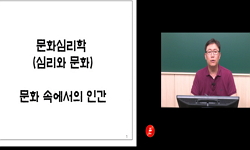1 Ministry of Culture & Tourism, "White paper on physical education" Ministry of Culture & Tourism. 2002
2 Lee,Y.J, "The relationship with physical self-concept of the self-esteem, psychological well-being and life satisfaction" Chonnam National University 2002
3 Nam,S.K, "The relationship between the participation in physical exercise activities of adult male and female and physical self-concept" Daegu University 2005
4 Jung,S.W, "The relation between workers' participation in sports activities and their physical self-concept" Yongin University 2006
5 Wankel, L. M, "The psychological and social benefits of sport and physical activity" 22 (22): 167-182, 1990
6 Kim,J.E, "The integrative study on comparison of physical self-concept between softball players and general students" Korea University 2004
7 Dishman, R. K, "The influence of response distortion in assessing self-conception of physical activity" 51 : 286-299, 1980
8 Kim,W.H, "The influence of physical self-concept on the psychological satisfaction" Pusan University 2003
9 Park,S.C, "The influence of health-exercise participants' physical self-concept on psychological happiness" Pusan University 2004
10 Jung,Y.K, "The effects of sport participation on physical self-concept in middle school students" 6 : 247-260, 2005
1 Ministry of Culture & Tourism, "White paper on physical education" Ministry of Culture & Tourism. 2002
2 Lee,Y.J, "The relationship with physical self-concept of the self-esteem, psychological well-being and life satisfaction" Chonnam National University 2002
3 Nam,S.K, "The relationship between the participation in physical exercise activities of adult male and female and physical self-concept" Daegu University 2005
4 Jung,S.W, "The relation between workers' participation in sports activities and their physical self-concept" Yongin University 2006
5 Wankel, L. M, "The psychological and social benefits of sport and physical activity" 22 (22): 167-182, 1990
6 Kim,J.E, "The integrative study on comparison of physical self-concept between softball players and general students" Korea University 2004
7 Dishman, R. K, "The influence of response distortion in assessing self-conception of physical activity" 51 : 286-299, 1980
8 Kim,W.H, "The influence of physical self-concept on the psychological satisfaction" Pusan University 2003
9 Park,S.C, "The influence of health-exercise participants' physical self-concept on psychological happiness" Pusan University 2004
10 Jung,Y.K, "The effects of sport participation on physical self-concept in middle school students" 6 : 247-260, 2005
11 Kang, S. G, "The effects of Taekwondo activity of health related fitness and physical self description on the elementary school students" 14 (14): 55-64, 2003
12 Lee,H.K, "The effects of Imago psychotherapy on self- concept on nursing students" 11 (11): 137-144, 2002
13 Jeon,S.H, "Sport psychology: Exercise and self-concept/self-esteem. Korean Society of Sport Psychology" Taekeun Press 1998
14 Hamdan-Mansour, A. M, "Psychological well-being and general health of Jordanian University students" 45 (45): 31-39, 2007
15 Ryff, C. D, "Psychological well- being and ill-being: Do they have distinct or mirrored biological correlates" 75 : 85-95, 2006
16 Yoo, J, "Physical self-concept profile for leisure sport participants: Sports and management" 849-859, 2003
17 Lyu, M. J, "Physical self-concept by the level of sport participation of university students" 16 (16): 97-109, 2005
18 Plante, T. G, "Physical fitness and enhanced psychological health: In children's health council" 9 (9): 3-24, 1990
19 Hassmen, P, "Physical exercise and psychological well-being: A population study in Finland" 30 : 17-25, 2000
20 Yang,M.H, "Physical activity and psychological well-being: Development of cognitive-affective states scale" 9 (9): 113-124, 1998
21 Netz Y, "Physical activity and psychological well-being in advanced age: A meta-analysis of intervention studies" 20 (20): 272-284, 2005
22 Ryff,C, "Happiness is everything, or is it? Explorations on the meaning of psychological well-being" 57 : 1069-1081, 1989
23 Sonstroem,R.J, "Exercise and self-esteem. In:Exercise and sport science review" Collare 123-155, 1984
24 Kim,Y.J, "Effects of aerobic participants' physical self-concept on psychological well-being" Pusan University 2004
25 Stelter,R, "Du bist wie dein sport-studien zur entwicklung von selbstkonzept und identitat" Hofmann 1996
26 Kim,B.J, "Development and validation of the korean version of the physical self-description questionnaire(PSDQ)" 12 (12): 69-90, 2001
27 Jo,K.C, "Dancesport participation and physical self-concept" 19 : 1011-1021, 2003
28 Lee, J. E, "Body-related attitude, self-esteem and eating attitude in undergraduate students" 12 (12): 603-611, 2003
29 Yang,S.H, "A study on the relationship between self-concept and the mental health of nursing students in junior college in some area" 10 (10): 376-390, 2001
30 Ma,S.R, "A causal study of relationship between elders' sport participation, self-esteem, loneliness, and psychological well-being" 12 (12): 51-64, 2001






 KISS
KISS






